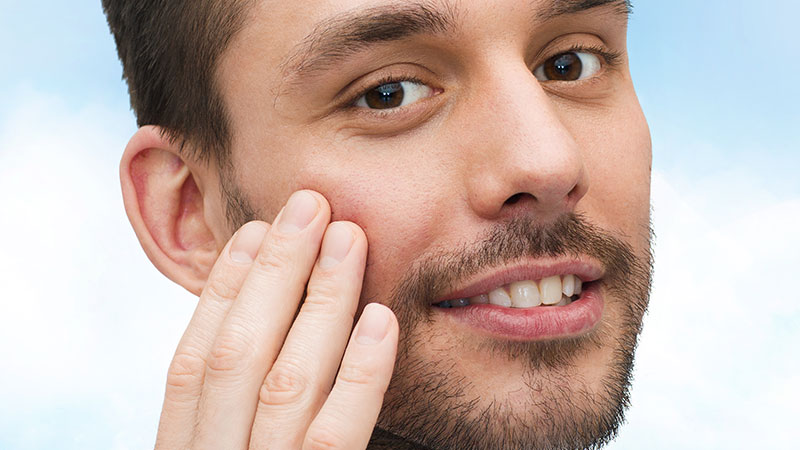Are saunas good for you? This question has intrigued health enthusiasts and researchers alike, seeking to uncover the truth behind the centuries-old practice of sauna bathing.
The answer, supported by extensive scientific research, is a resounding yes. Saunas offer a range of health benefits that extend beyond mere relaxation.
From promoting detoxification through sweating to enhancing cardiovascular function and even supporting mental well-being, saunas have earned recognition as a valuable tool for holistic health maintenance.
However, while the benefits are clear, it’s essential to approach sauna use responsibly, considering individual health conditions and following recommended guidelines for duration, temperature, and hydration.
By understanding the nuances of sauna bathing and its potential impacts, individuals can leverage this ancient practice to enhance their overall health and well-being effectively. Stay sharp.

What is Sauna?
A sauna is a heated room or small building designed for relaxation, health benefits, and socializing. Originating from Finland, saunas typically feature dry heat generated by a stove or heater that warms rocks, which in turn radiate heat.
Users typically sit or lie down in the sauna, often on benches at different heights to experience varying temperatures. The air inside can reach high temperatures, usually between 70°C to 100°C (158°F to 212°F), promoting sweating and circulation.
Saunas are valued for their potential health benefits, including stress relief, muscle relaxation, improved cardiovascular function through increased heart rate, and enhanced skin cleansing by opening pores and flushing out toxins.
Socially, saunas are places for leisure and conversation, fostering a sense of community and relaxation.
They are found in various settings, from private homes to health clubs, spas, and wellness centers, catering to individuals seeking physical and mental rejuvenation through the therapeutic effects of heat and humidity.
Are Saunas Good for You?
Saunas offer several potential health benefits when used appropriately. The heat in saunas induces sweating, which can help cleanse the skin by opening pores and flushing out toxins. This process may contribute to improved skin appearance and a sense of relaxation.
Saunas also stimulate circulation and increase heart rate, which can have cardiovascular benefits similar to moderate exercise, potentially improving cardiovascular health over time.
Regular sauna use has been associated with reduced risk factors for heart disease, such as lower blood pressure and improved vascular function. Additionally, the heat and relaxation experienced in saunas may help alleviate stress and promote better sleep quality.
However, sauna use should be approached cautiously, especially by those with certain medical conditions or medications that affect heat tolerance.
Dehydration and overheating are potential risks, so staying hydrated and limiting session duration are important precautions.
Benefits of Saunas for Health
Saunas have been used for centuries across various cultures as a means of relaxation, socialization, and health maintenance.
The practice involves exposing oneself to high temperatures in a controlled environment, typically a small room or chamber. This heat exposure induces sweating, which is believed to have numerous health benefits.
Modern research has increasingly supported these traditional claims, highlighting saunas as more than just a luxury or relaxation tool but also as a significant contributor to overall health and well-being.
1. Detoxification

One of the primary benefits attributed to saunas is detoxification. Sweating profusely in a sauna helps the body eliminate toxins and metabolic waste through the skin.
This process can support the liver and kidneys by reducing their load, promoting overall detoxification and cleansing of the body.
2. Improved Cardiovascular Function

Regular sauna use has been shown to improve cardiovascular function in several ways. The heat exposure causes blood vessels to dilate, which can lead to improved circulation.
This dilation also lowers blood pressure temporarily, which may benefit those with hypertension. Moreover, sauna use has been associated with a reduction in the risk of cardiovascular diseases such as heart attacks and strokes.
3. Stress Relief and Relaxation

Saunas are renowned for their ability to promote relaxation and reduce stress. The heat relaxes muscles and stimulates the release of endorphins, often referred to as the body’s natural feel-good chemicals.
This effect can help alleviate tension and promote a sense of well-being, making saunas a valuable tool in stress management.
4. Enhanced Skin Health

The sweating induced by sauna sessions helps to cleanse the skin by flushing out toxins and impurities from the pores. This process can improve overall skin tone, texture, and clarity, leading to a healthier complexion.
Additionally, increased circulation from sauna use can promote collagen production, which may reduce the appearance of wrinkles and fine lines.
5. Muscle Recovery and Pain Relief

Athletes and fitness enthusiasts often use saunas to aid in muscle recovery after intense workouts. The heat helps relax muscles and reduce soreness by increasing blood flow to affected areas.
Saunas can also provide temporary relief from chronic pain conditions such as arthritis and fibromyalgia, making them a natural complement to conventional pain management strategies.
6. Immune System Support

Regular sauna bathing has been linked to improved immune function. The increased body temperature during sauna sessions mimics a fever-like state, which stimulates the production of white blood cells and antibodies.
This immune response can enhance the body’s ability to fight off infections and illnesses, potentially reducing the frequency of colds and flu.
7. Weight Loss and Metabolism Boost

While not a substitute for exercise and a balanced diet, saunas can support weight loss efforts through increased calorie expenditure.
The heat generated in a sauna session raises the heart rate and metabolic rate, similar to moderate-intensity exercise. This effect can contribute to calorie burning and weight management when combined with a healthy lifestyle.
8. Improved Respiratory Function

Sauna use can benefit individuals with respiratory conditions such as asthma and chronic bronchitis. The warm, humid air in saunas can help open up airways, improve lung function, and ease breathing difficulties.
This effect is particularly noticeable in steam saunas, where the moist air can soothe irritated respiratory passages.
9. Cognitive Enhancement

Emerging research suggests that regular sauna use may have cognitive benefits as well. Heat stress triggers the release of proteins called heat shock proteins (HSPs), which are believed to protect brain cells from stress and improve cognitive function.
This protective effect could potentially reduce the risk of neurodegenerative diseases such as Alzheimer’s and Parkinson’s.
10. Social and Cultural Benefits

Beyond its physiological advantages, sauna bathing has significant social and cultural importance in many societies. Saunas serve as communal spaces where people gather to relax, socialize, and strengthen social bonds.
These social interactions contribute to mental health and well-being by reducing feelings of isolation and fostering a sense of community.
Saunas offer a multitude of health benefits that extend well beyond relaxation and stress relief.
From detoxification and improved cardiovascular function to enhanced skin health and immune support, the therapeutic effects of sauna bathing are increasingly supported by scientific research.
Incorporating regular sauna sessions into a healthy lifestyle can contribute to overall well-being, making saunas a valuable tool for maintaining and improving health.
Things to Consider About Saunas
Saunas are widely celebrated for their health benefits, but there are important considerations to keep in mind before incorporating sauna bathing into your routine. Here are several factors to consider:
Health Conditions and Precautions
Before using a sauna, individuals with certain health conditions should consult a healthcare professional. Conditions such as cardiovascular disease, hypertension, and pregnancy may require special precautions or restrictions on sauna use to avoid adverse effects.
Hydration
Sauna sessions can lead to significant fluid loss through sweating. It’s crucial to stay well-hydrated before, during, and after sauna bathing to prevent dehydration.
Drinking water or electrolyte-rich beverages helps maintain fluid balance and supports the body’s cooling mechanisms.
Temperature and Duration
Sauna temperatures can vary widely, from dry saunas typically ranging between 70°C to 100°C (158°F to 212°F) to steam saunas with lower temperatures but higher humidity.
It’s essential to adjust the sauna temperature and duration according to personal comfort levels and tolerance to heat.
Timing of Sessions
Avoid prolonged or excessive sauna sessions, especially for beginners. Start with shorter sessions, typically 10 to 15 minutes, and gradually increase duration as tolerance develops. Allow adequate time between sessions for the body to cool down and recover.
Hygiene and Cleanliness
Saunas are communal spaces, so maintaining proper hygiene is crucial to prevent the spread of bacteria and viruses.
Always shower before entering a sauna to remove oils, lotions, and any contaminants. Use a clean towel to sit or lie on and wipe away sweat to maintain cleanliness.
Effects of Alcohol and Medications
Alcohol consumption before sauna use can amplify the heat’s effects and lead to dehydration.
Similarly, certain medications may interact with heat exposure, affecting cardiovascular function or increasing the risk of heat-related illness. Consult a healthcare provider about any medication concerns before sauna bathing.
Cooling Down Properly
After a sauna session, allow sufficient time to cool down gradually. Avoid sudden temperature changes, such as jumping into cold water or taking a cold shower immediately after leaving the sauna, as this can stress the cardiovascular system. Instead, cool down slowly by resting and hydrating.
While saunas offer numerous health benefits, including relaxation, detoxification, and improved cardiovascular function, it’s essential to approach sauna bathing with mindfulness and consideration for personal health and safety.
By understanding these factors and taking appropriate precautions, individuals can enjoy the therapeutic benefits of saunas while minimizing potential risks.
Wrapping Up
Saunas offer a myriad of health benefits, from promoting relaxation and stress reduction to aiding in detoxification and improving cardiovascular function.
Scientific evidence supports their role in enhancing overall well-being. However, the benefits of saunas depend on several factors, including individual health conditions, hydration levels, and adherence to safety guidelines.
Consulting with a healthcare provider before starting sauna sessions is crucial, especially for those with cardiovascular issues or other medical concerns.
When used responsibly, saunas can be a valuable addition to a healthy lifestyle, offering both physical and mental health benefits. Embracing sauna bathing with mindfulness and moderation allows individuals to harness its therapeutic effects while minimizing potential risks.
Ultimately, the decision to incorporate saunas into one’s routine should be based on personal health goals and considerations, ensuring a balanced approach to reaping their full benefits. Best of luck.
